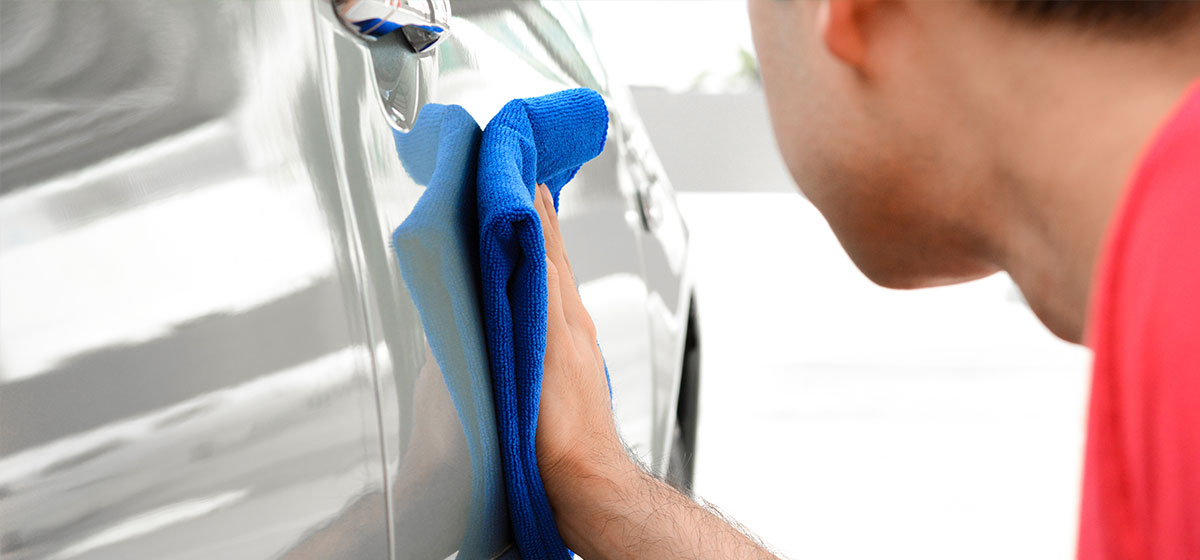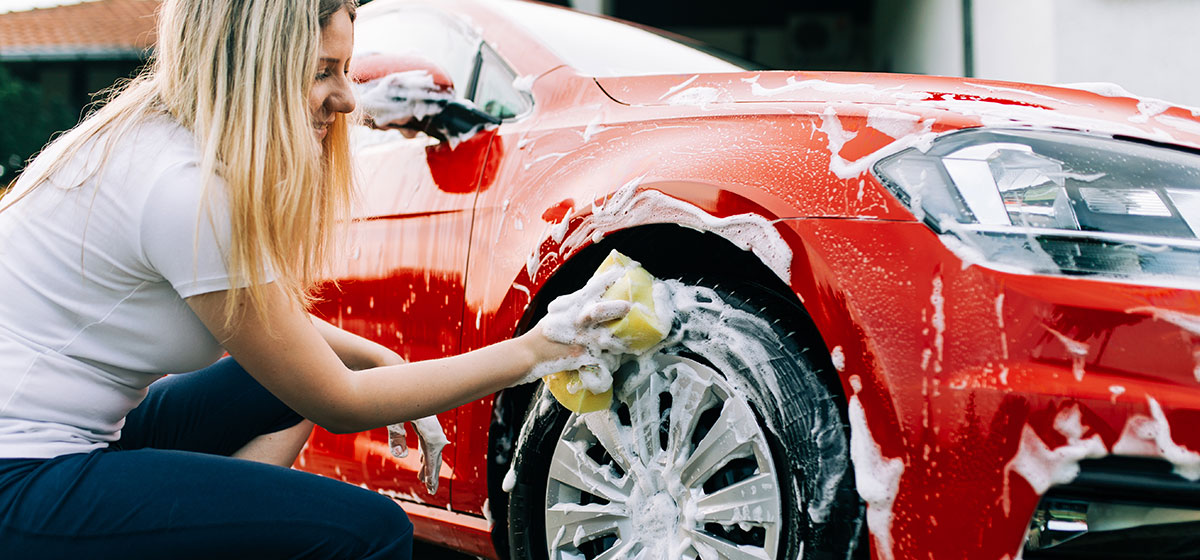- Home/
- Comparisons/
- Car Wash/
- Power Washer vs Pressure Washer for Cars
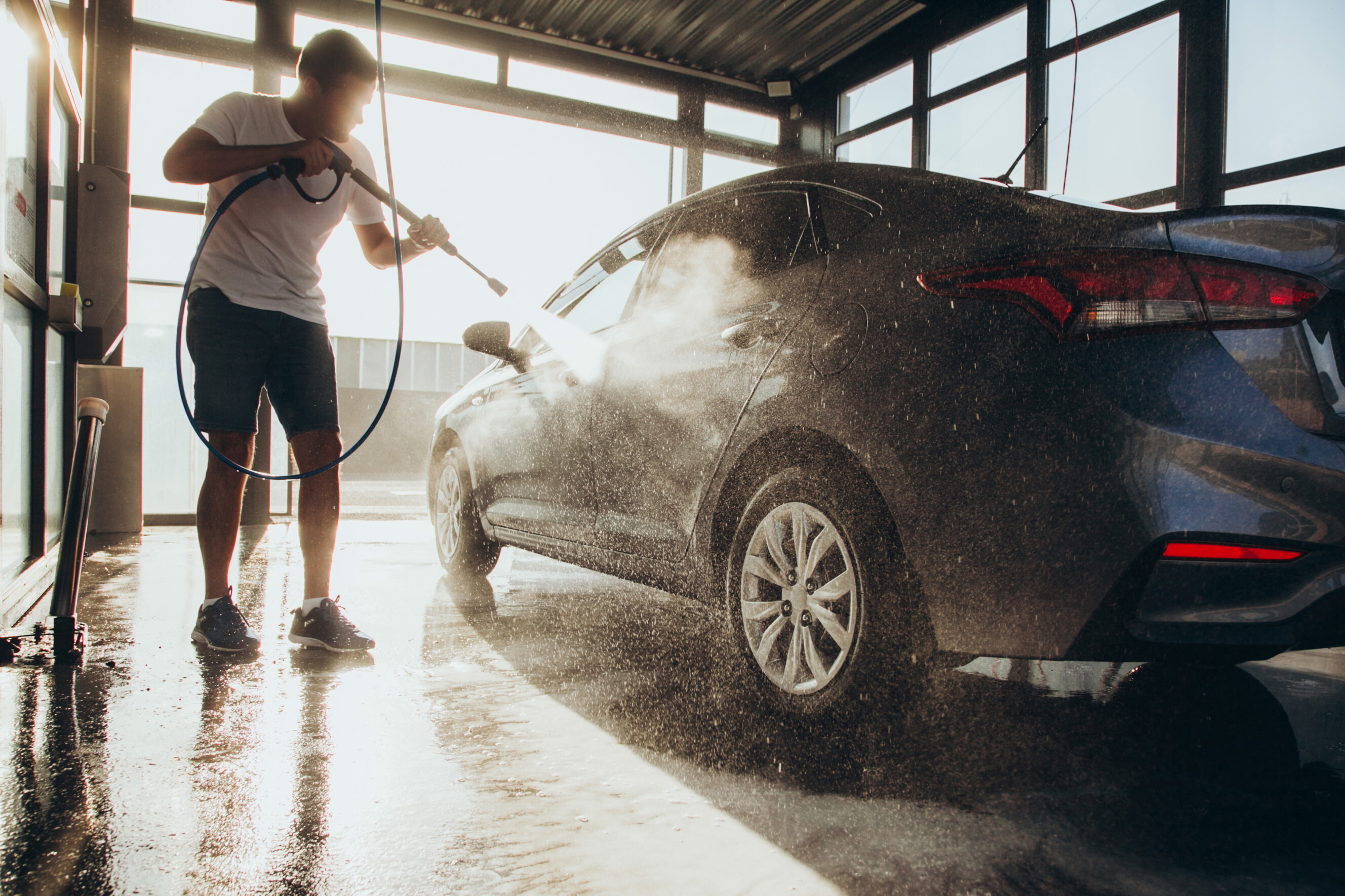
Power washer vs pressure washer: Which is better for cars?
Comparing power and pressure washers for cost, cleaning power, water efficiency, and more.
Hire a car wash expertPublished on

Written by Angela A.
Staff Writer
Read more about our contributor
Key Facts
- A power washer is a cleaning device that uses high-pressure water heated to high temperatures.
- A pressure washer is a cleaning tool that uses high-pressure cold water to remove dirt and grime.
Is your car coated in stubborn grime or just in need of a quick rinse? We know how important it is to keep your vehicle looking its best. But when it comes to choosing the right tool for the job, you might be scratching your head and comparing power washer vs pressure washer internally.
In this guide, we'll look into the key differences between the two. From water pressure and flow rate to how they treat different surfaces, we'll tackle it all. So, whether you're facing caked-on mud or just want to maintain that showroom shine, we've got you covered.
What is a power washer?
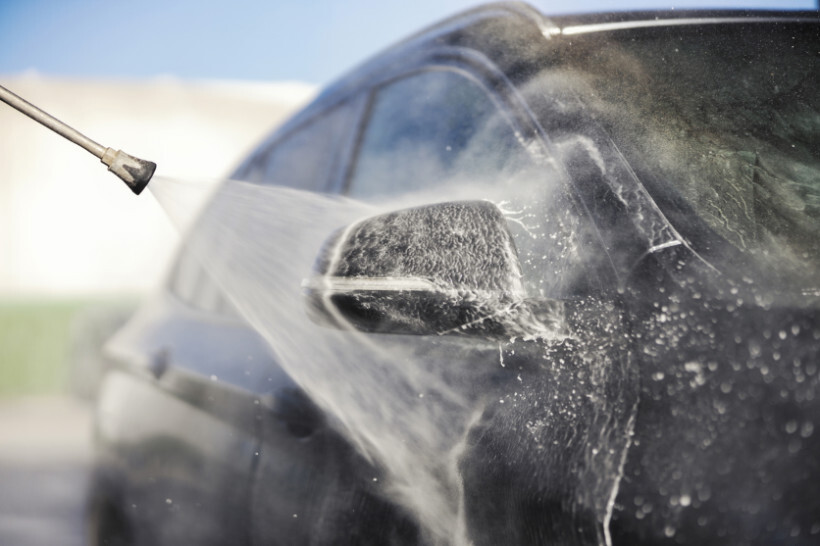 Using a power washer on a car. (Source: iStock)
Using a power washer on a car. (Source: iStock)
Simply put, a power washer is a cleaning device that uses high-pressure water that's been heated up. The key here is the hot water. It's what sets power washers apart. That hot water, combined with high pressure, makes short work of tough dirt and grime.
But let's dive a bit deeper. How does a power washer work? It uses a nozzle that blasts hot water at super high speeds. When you pull the trigger, you're essentially using the power of heated, high-pressure water to clean surfaces.
This process is especially effective for breaking down stubborn stains like oil, grease, and mould. It's like giving your car a spa day but with jet power washing.
People often use power washers not only for cars, but also for other cleaning tasks that need more than just brute pressure. The heat helps sanitise surfaces with heavy dirt, like driveways, parking lots, and large decks.
What is a pressure washer?
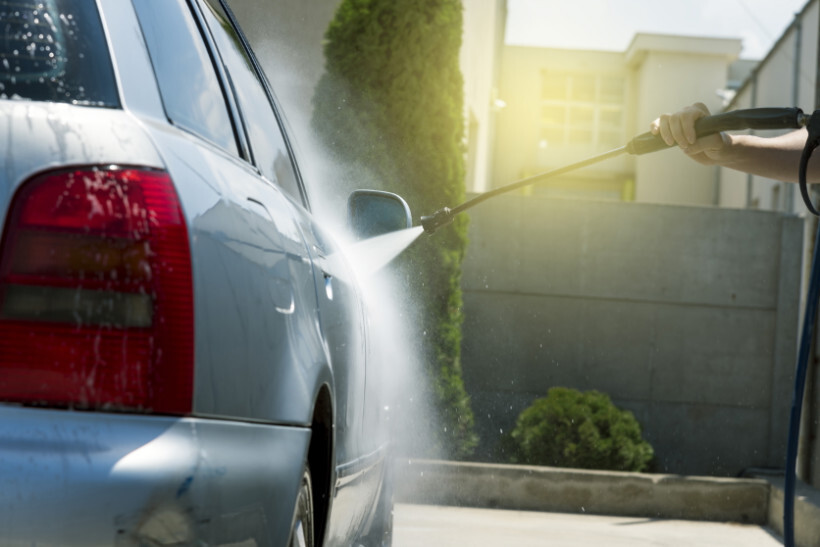 Using a pressure washer to clean a car. (Source: iStock)
Using a pressure washer to clean a car. (Source: iStock)
Pressure washers, also known as pressure cleaners, don't heat up the water before it hits the surface. You're working with cold or sometimes slightly warm water here. This makes them ideal for more delicate jobs where you wouldn't want to risk damage with scorching hot water.
Now, how does a pressure washer work? It pumps water at high pressure through a nozzle, which you direct to surfaces that need cleaning. The high-pressure water is great at removing dirt, grime, and even some types of paint.
They're perfect for washing your car, as well as for cleaning your patios and decks, or even removing dirt from outdoor furniture. It's incredibly efficient, easy to use, and versatile for various surfaces.
Power washer vs pressure washer for cars: Which is the better choice?
When it comes to cleaning your vehicle or car detailing, both power and pressure washers have their pros and cons. Deciding which one is right for you depends on a few key factors. Let's break it down so you can make the best choice for your needs.
In terms of water pressure
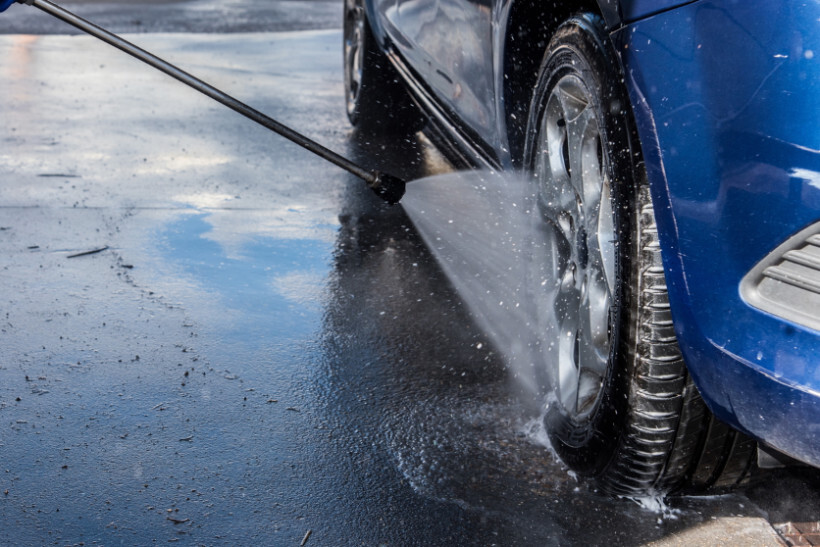 Cleaning car wheels with high water pressure. (Source: iStock)
Cleaning car wheels with high water pressure. (Source: iStock)
If you're looking for high-pressure cleaning services, power washers are often the go-to choice. They deliver a higher water pressure than pressure washers, which means they can tackle tougher grime and dirt. However, this increased pressure can sometimes be too much for delicate surfaces, so caution is necessary.
On the other hand, pressure washers offer a more controlled and gentle water pressure. This makes them perfect for everyday cleaning tasks. They serve well in situations where you don't need extreme force but still want a thorough clean. If you're concerned about damaging the paint on your car, a pressure washer might be the safer bet for your detailing needs.
In some cases, though, the lower pressure of a pressure washer won't suffice for stubborn stains. This is where the power washer shines. In the end, the balance of using high and low pressure really boils down to the specific task at hand.
In terms of water flow rate
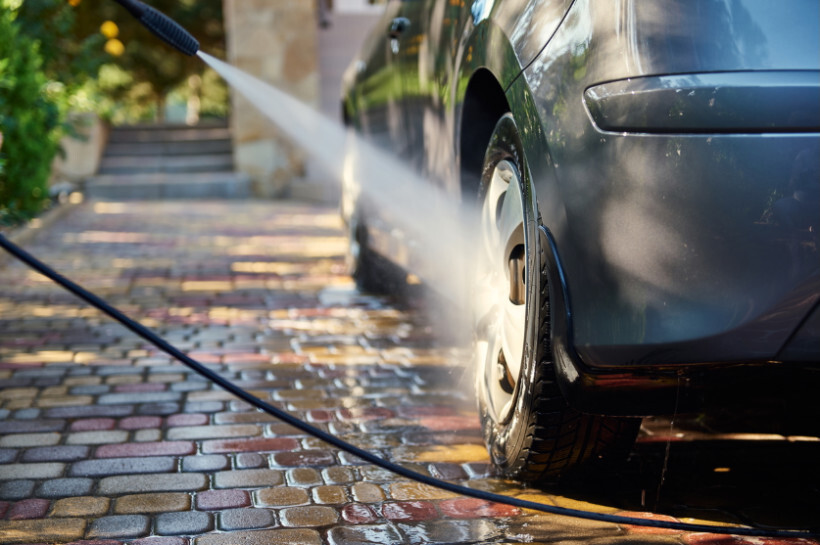 Power washer with high water flow rate. (Source: iStock)
Power washer with high water flow rate. (Source: iStock)
Everyone wants to save water when washing cars. That's why it's always good to know the water flow rate of both power washers and pressure washers.
Power washers generally use more water due to their higher pressure, but they can clean surfaces faster. This might reduce overall water usage. You’ll get a quicker clean, but you’ll need a bunch of water first to achieve it.
In contrast, pressure washers are designed to use less water while still delivering effective cleaning. You can opt for models that offer a lower flow rate, which is great for water conservation. It might take a little longer to scrub off stubborn dirt, but you'll be using less water in the process.
Since both types of washers have advantages, finding the right balance between water flow and cleaning efficiency is key.
In terms of cleaning power
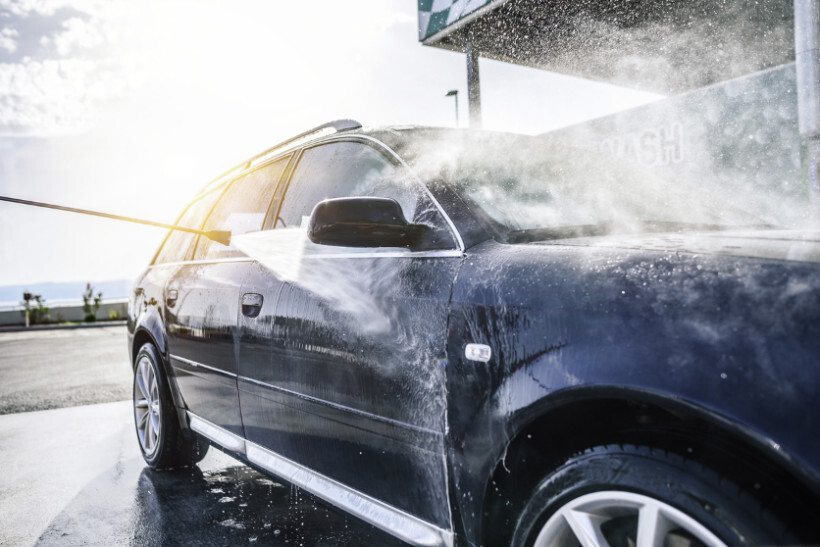 Thoroughly cleaning a car with a power wash. (Source: iStock)
Thoroughly cleaning a car with a power wash. (Source: iStock)
isn't just about maintaining its appearance. It's also important for removing contaminants that can cause damage over time. That's why having enough cleaning power matters.
Power washers unquestionably pack a punch. They easily cut through the toughest grime and mud that often plague cars, thanks to their high-pressure output and hot water. That's why they're ideal when you need a deep clean in a short amount of time.
On the other hand, pressure washers offer a balanced approach with their medium-pressure streams. They might not deliver the same raw power, but they’re perfect for regular maintenance. The controlled pressure ensures you’re not chipping away paint, so they're a safer option for frequent use.
Using a water pressure cleaner correctly can help minimise environmental impact. Opt for biodegradable soaps to keep harmful chemicals from seeping into the ground. You can also focus on targeted cleaning areas so you reduce the volume of water needed.
In terms of portability
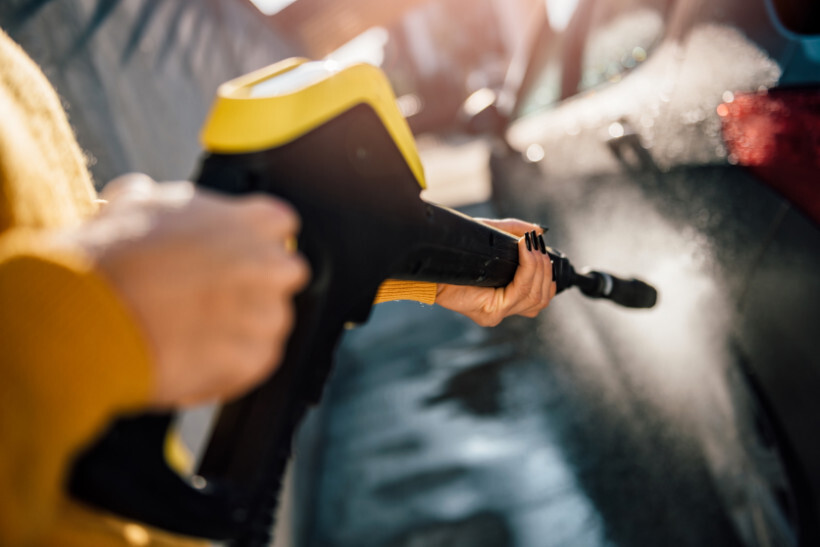 Using a portable washer on a car. (Source: iStock)
Using a portable washer on a car. (Source: iStock)
Power washers can be a bit harder to move around due to their bulkier build, Their high-powered engines add weight, so they're less easy to transport. However, they often come with wheels or handles to somewhat counteract this inconvenience.
On the other hand, most pressure washers are lightweight and compact, making them extremely portable and easier to lug around your yard or driveway. Plus, they’re easier to store in your garage or shed.
Choosing will depend on what you prioritise—whether it’s muscle or mobility. Think about the space you have for storage and how often you'll need to move it around.
In terms of cost
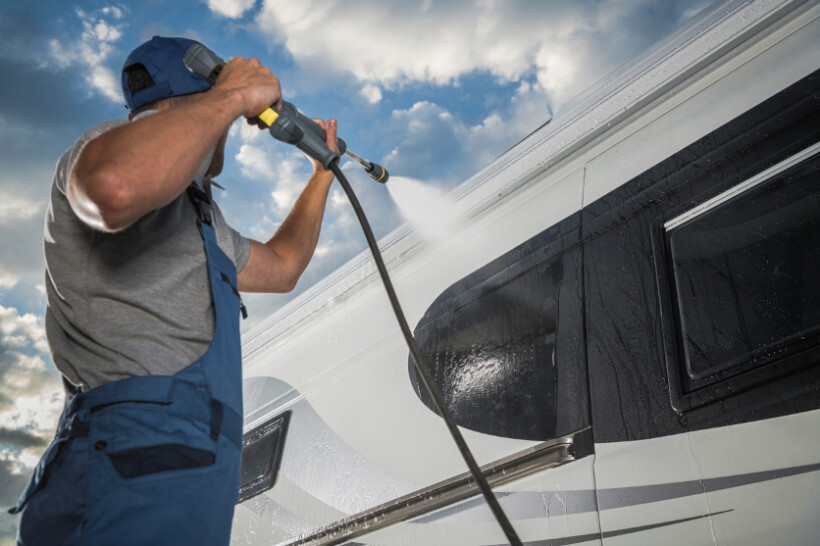 Man pressure washing his car. (Source: iStock)
Man pressure washing his car. (Source: iStock)
When it comes to cost, power washers generally hit your wallet harder. Expect to shell out between £200 and £500 for a decent model. While this upfront cost might seem steep, you're paying for higher pressure and the ability to handle tough dirt.
Pressure washers are usually more affordable. You can find a quality unit ranging from £150 to £300. This lower cost makes them more appealing for regular users who don't need the extra strength of a power washer.
However, it's also wise to consider the ongoing upkeep costs. After all, hoses, nozzles, detergents, and repairs all add up. Over time, those can rival the car wash costs you thought you'd be saving on.
For starters, a professional car wash service in the UK goes from £5 to £195 per session and a car detailer can cost anywhere from £35 to £800. Meanwhile, if you DIY, you pay not just for the expensive equipment, electricity, and chemicals. You even have to exert effort in doing the cleaning itself.
Compare that to having a pro handle everything. They get the job done quickly and usually more thoroughly. Plus, they have the know-how to cover all surfaces without damaging your vehicle.
In terms of versatility in cleaning tasks
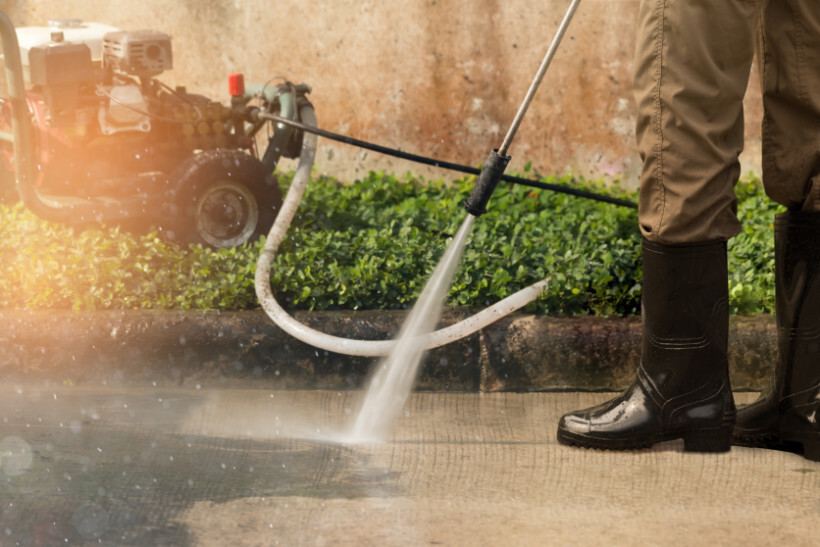 Man power washing the driveway. (Source: iStock)
Man power washing the driveway. (Source: iStock)
Pressure washers can clean a wide variety of surfaces, so they're more versatile for general use. From driveways to patios and even garden furniture, they handle these tasks like pros. While they may lack the heat of power washers, they're gentler on surfaces yet still effective.
When it comes to detailing a car, though, power washers excel at cutting through almost anything. Thanks to their high pressure and added heat, they can tackle even the wheels and undercarriages effortlessly. For areas with accumulated oil or grease, they're your best bet.
However, both types of washers adapt well to different nozzle attachments and detergents. These can improve their functionality. However, power washers offer an edge in heavy-duty settings.
Achieve convenient car washing and detailing – find vetted experts on Airtasker
When you think of it, both power and pressure washers have their unique advantages depending on what you need. For routine car cleaning and other household tasks, a pressure washer's versatility makes it the go-to option. However, for that extra force, you can't beat the power washer.
But, if you're just not up for doing it yourself, there's no need to stress. Ever thought about handing the job to someone who does this for a living? With Airtasker, you can skip the hassle and let a professional take care of all your car needs.
Whether it's a basic car wash or a thorough car detailing, you're sure to find the right help. Just post your task, and you'll be connected with experienced car cleaning pros who can get your vehicle looking pristine in no time.
Learn more about our contributors

Written by Angela A.
Staff Writer
Angela Apolonio is an experienced writer with a Biology background. She writes about home tips, car upkeep, gardening hacks, and food facts, bringing a unique blend of science and practicality to her work. As a wife and a mother, she knows the value of iron-clad routines, so she's passionate about sharing what works for her with everyone else. She loves making everyday life simpler and helping readers find fresh ideas to bring more joy into their spaces.
Side-by-side comparison
| Power Washer |
Pressure Washer |
|
|---|---|---|
| Water Pressure |
Higher pressure; ideal for tough grime and stains |
Lower pressure; safer for delicate surfaces like car paint |
| Water Flow Rate |
Higher flow rate; uses more water but cleans faster |
Lower flow rate; more water-efficient but cleans slower |
| Cleaning Power | Higher cleaning power due to hot water combined with high pressure |
Adequate cleaning power for regular maintenance |
| Portability |
Bulkier and heavier; less portable | More lightweight and compact; easier to move around |
|
Cost |
Generally more expensive due to greater cleaning strength | More affordable due to slightly limited capabilities |
| Versatility in Cleaning Tasks |
Excellent for heavy-duty cleaning but too much for fragile materials |
Flexible and usable on more types of surfaces |
FAQs on power washers and pressure washers
A pressure washer with 1200 to 1900 PSI is ideal for washing a car without causing damage.
A pressure washer is generally more effective at removing dirt and grime compared to a regular hose. This is because it uses a concentrated stream of water that makes the cleaning process faster and more thorough.
Pressure washing and jet washing are terms often used interchangeably, but jet washing typically refers to using very high pressure for tougher jobs.
Find car washers, fast
Post a task
Related articles
Related price pages

How much does an eco car wash cost?
Read more
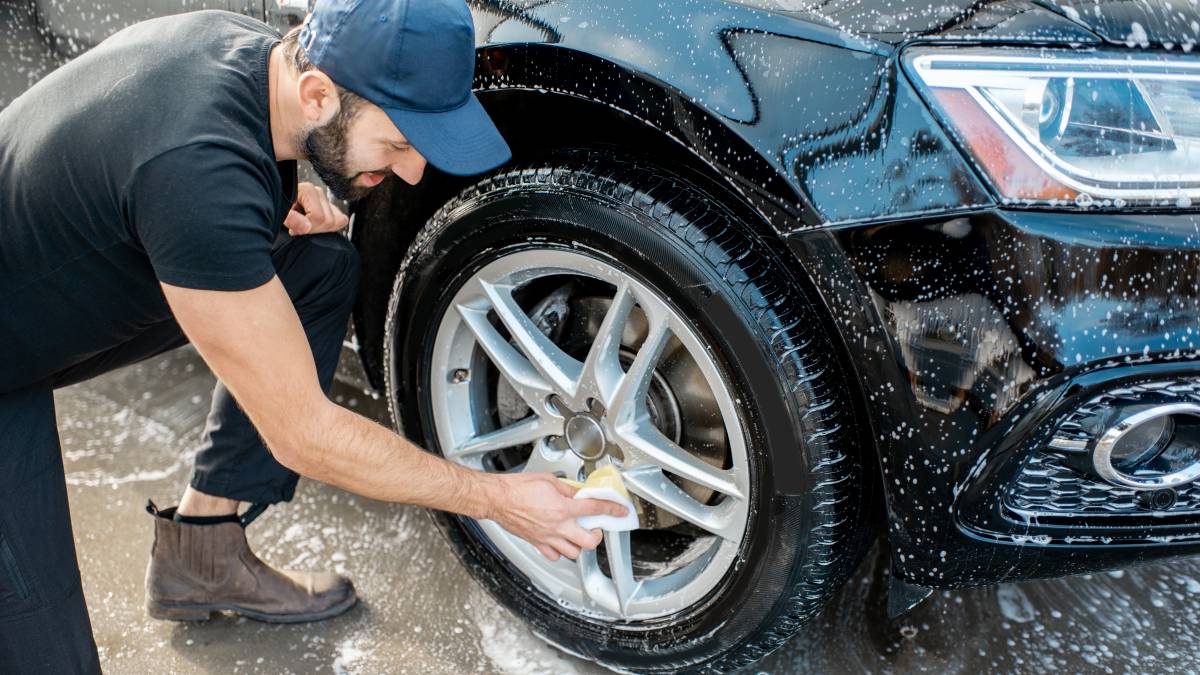
How much does a car wash cost?
Read more
